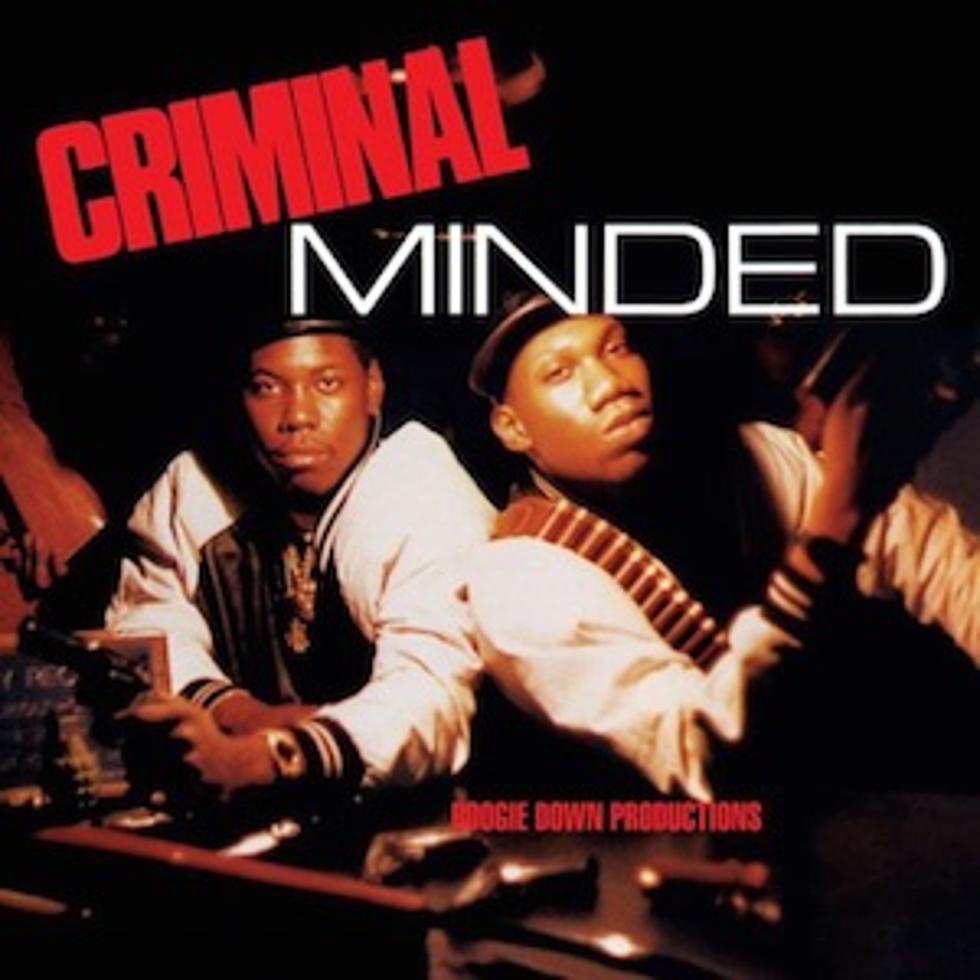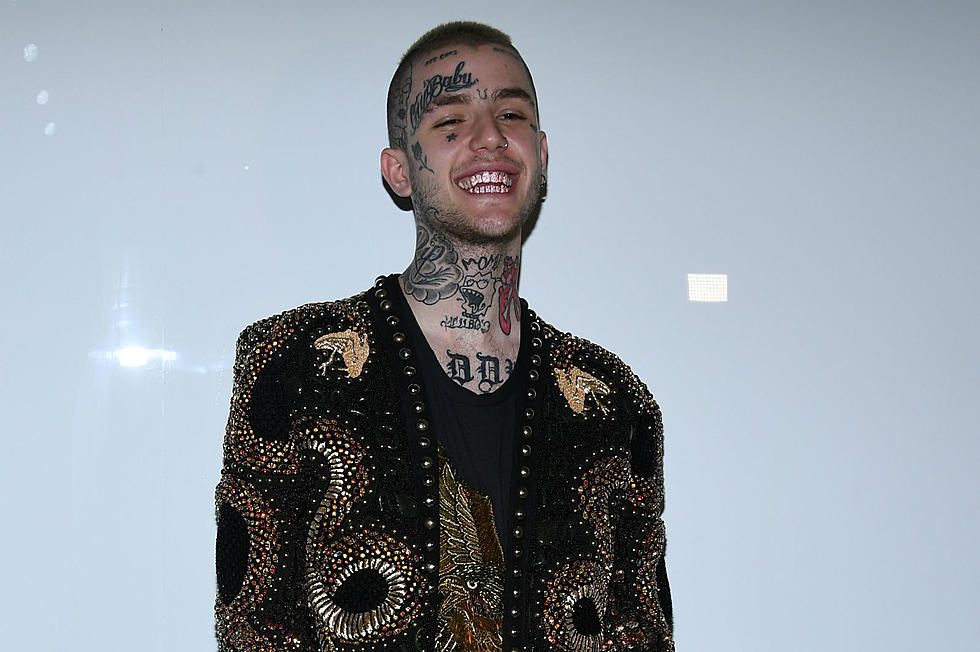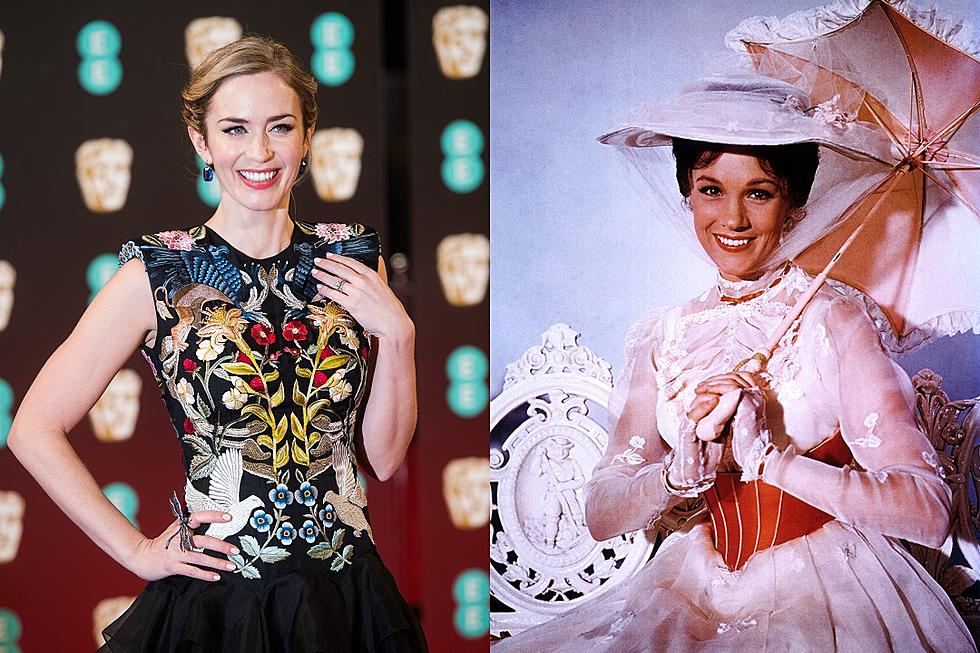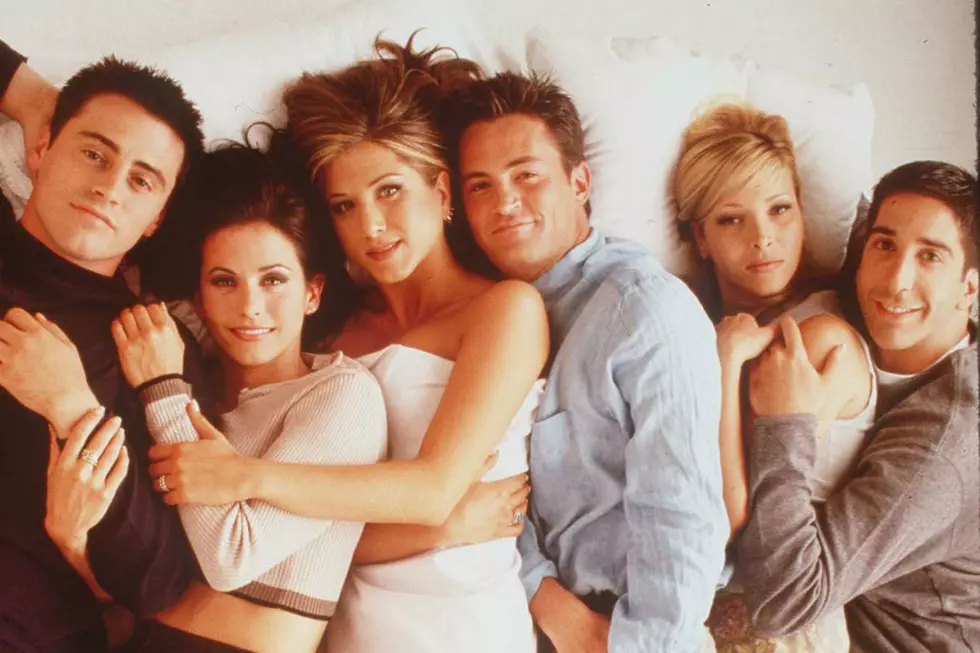
‘Criminal Minded’ Turns 30: Boogie Down Productions’ Debut was Both ‘Gangsta’ and Aware
Hip-hop was going through significant change in 1986. The commercial success of artists like Run-DMC and the visibility of labels like Def Jam Recordings was turning the genre into a viable industry. Artists like the Beastie Boys and LL Cool J were cementing the album as hip-hop's most essential tool for creative expression and fortifying the idea that rappers could sell and sell big. But as rap music became a commercial industry, underground hip-hop culture became even more essential to the genre's progression. Founded by friends Kris "KRS-One" Parker, and Scott "DJ Scott La Rock" Sterling, Boogie Down Productions was able to forge a legacy that amplified what was coming out of hip-hop's "new school" underground--and with their classic debut album Criminal Minded, BDP helped set the stage for hip-hop's broadening in the late 1980s and early 1990s. Before seminal albums like Public Enemy's It Takes A Nation of Millions To Hold Us Back, N.W.A.'s Straight Outta Compton or Eric B. & Rakim's Follow the Leader, it was the debut album from Scott and Kris that provided a jumping-off point for everything from gangsta rap to conscious rap to battle rap on wax. In the late 1980s, hip-hop would become broader and more stylistically and thematically varied; and the nexus for so much of that diversification starts with this unassuming, stripped-down masterpiece by two buddies from the Bronx.
The duo met in 1986, when Kris (born Lawrence Parker) was homeless and living at the Franklin Armory Men’s Shelter on 166th St in the Bronx, where Sterling was a social worker. In his free time, Sterling DJed as Scott La Rock at the Broadway Repertoire Theatre. A graffiti artist who also wrote rhymes, Kris would team with Scott and a younger friend, Derrick "D-Nice" Jones, to form a hip-hop group called the Boogie Down Crew. Eventually realizing the power in creating and producing their own records, they soon changed their name to Boogie Down Productions. BDP recorded their first single, "Success Is the Word," through Sleeping Bag Records, and set about recording their first album.
KRS would immediately become one of the most formidable amongst the "new school" of emcees that emerged in the mid-1980s. The emergence of Boogie Down Productions coincided with the rise of the Juice Crew; two cliques who didn't have the mainstream visibility of the chart-topping artists on rising hip-hop label Def Jam, but they both would be major players at the dawn of hip-hop's so-called Golden Age. The Juice Crew was led by superproducer Marley Marl, who was an affiliate of legendary hip-hop radio DJ Mr. Magic. But after Mr. Magic dissed the up-and-coming BDP at Power Play Recording Studios, bad blood led to what would become "The Bridge Wars" between the two crews, with BDP gaining notoriety via their salvos aimed at Marley's crew. With the backdrop of beef between BDP and the Juice Crew, KRS-One and Scott La Rock would deliver tracks focused squarely on Marley and Juice Crew rapper MC Shan and cement their place in hip-hop beef history.
But Criminal Minded was more than its Bridge Wars backstory. There hadn't been a hip-hop album this unflinchingly street before BDP unleashed their first album. KRS rapped about project life, from gunplay to drug addiction and prostitution; subjects that felt like an expansion on tracks like Grandmaster Flash and the Furious Five's "The Message" and "It's Like That" by Run-DMC. Those songs had indicated hip-hop's potential for street commentary, but where they each felt like a snapshot of hood life, the sustained viewpoint of KRS was a much fuller--and often grittier--picture of the neighborhood. With production from KRS and Scott aided by Ced-Gee, (who would find more success with the Ultramagnetic MCs), the sound of Criminal Minded matched it's content: it was decidedly bare-bones and made no concessions to pop audiences whatsoever.
The stripped-down sonic power of the album is immediately apparent on album opener "Poetry." A track that acknowledges hip-hop rhyming as an elevated art, it's an early manifesto for what would become common territory for Kris: the recognition of hip-hop as a legitimate, vibrant artform. And the production is characteristically minimal; a hard-hitting beat courtesy of Scott La Rock and Ced Gee.
"South Bronx" is a hip-hop classic and one of the greatest songs in BDP's catalog. Of course, the song would become an anthem for the borough and another shot fired in The Bridge Wars. One of countless rap classics that flipped James Brown's "Funky Drummer"--and with an ingenious use of both "Smokin That Cheeba Cheeba" by the Harlem Underground and Brown's "Get Up Offa That Thang"--its become a mainstay of hardcore 80s rap and a blueprint for the classic East Coast boom-bap sound. And KRS goes in, taking MC Shan down with lyrical shots that would come to define the beef.
“Party people in the place to be, KRS-One attack/Ya got dropped off MCA cause the rhymes you wrote was wack/So you think that hip-hop had its start out in Queensbridge/
If you pop that junk up in the Bronx you might not live”
On "My 9MM Goes Bang," again KRS centers his perspective on street life. The lyrics tell the story of a violent confrontation with a drug dealer in his neighborhood. "My 9MM..." is another early BDP banger; with KRS adopting a dancehall-esque flow that highlights the connection between hip-hop and Caribbean culture. Kris' father was from Trinidad, and the rapper always kept hip-hop's island connections prominent in his music, and with the zungguzeng flow of "My 9MM Goes Bang" he would pronounce those connections in a lyrical way that proved wildly influential on later emcees like Phife Dawg and Busta Rhymes.
With "Elementary," KRS again provides hints of the socially-conscious emcee that would come to define his persona in later years. Breaking down hip-hop from an intellectual and quasi-academic standpoint, KRS challenges emcees to step their game up and to pay attention: "Biting routines or saying something kinda weak/My words are comprehended every time I speak/I have spoken, no I'm not joking/Please don't sleep, I hope you are awoken."
Taking a cue from the rap-rock fusions of Run-DMC, "Dope Beat" features KRS rhyming over a deft sample of AC/DC's "Back In Black." But whereas the Kings from Queens took a glossier approach to their metal excursions, this track keeps in the same bare-bones vein of the rest of Criminal Minded. This is no crossover attempt, even with the hard rock hit providing the song's foundation, it's still stripped, hardcore rap.
Again delving into the realities of the dope game, KRS showcases his storytelling skills on "The Remix For the P Is Free," one of the first hip-hop songs to explicitly detail how the drug trade fueled prostitution in crack-ridden neighborhoods of the 1980s. Following the original version (which was the B-side for BDP's first single), KRS describes interactions with crack addicted girls selling sex--rapping on the hook: "The girlies is free/But the crack costs money!/Oh yeah!" It's not at all empathetic and wallows in standard rap game misogyny, but it provides a window into an epidemic that was becoming all-too-common in the Reagan era.
"The Bridge Is Over" is arguably the most iconic song on Criminal Minded. The classic diss track was a response to MC Shan's underground hit "The Bridge," which had featured the Queensbridge rapper bragging about his borough. KRS and Scott heard the song and believed that Shan was praising Queens for birthing hip-hop; and the Bronx natives couldn't let that kind of revisionist history slide. Taking aim at Shan, Marley Marl and the Juice Crew, KRS slammed the entire borough of Queens while giving hip-hop another potent diss track--one that's even more venomous than "South Bronx."
Scott La Rock gets his own quasi-anthem of sorts with "Super Hoe." It was standard for emcees to shout-out their DJs with a specified track on the album, but BDP did something a little different: instead of rapping about Scott's turntable skills, KRS raps about Scott's appetite for sex. "The Super Hoe is loose in your section/And he's armed with a powerful erection/So grab your girl and run for protection/Your momma too, cause I like to mention..."
The title track opens with KRS jokingly crooning a spoof of the Beatles' "Hey Jude," before launching into his hard-hitting anthem and once again attacking sucka emcees. "Criminal minded, you've been blinded/Looking for a style like mine you can't find it/They are the audience, I am the lyricist/Sometimes the suckers on the side gotta hear this."
Released March 3, 1987, Criminal Minded reverberated throughout New York City's hip-hop underground and solidified KRS-One as an emcee of the highest order. The album's cover, which featured KRS and Scott brandishing weapons and surrounded by ammunition, was unflinchingly grim and gritty; and would become one of the most iconic in 80s hip-hop. It amplified BDP as urban soldiers, forever connected to the Bronx streets from whence they'd come.
"The idea was revolutionaries," KRS told MTV back in 2010. "If you look at the cover of Criminal Minded, that's what we were saying modern-day Black Panthers are. I had the gun belt going over the shoulder, grenades. That wasn't hood. It wasn't like [we] had guns on the table like we were drug dealers — we had grenades. Real paramilitary stuff was on the table. We were showing ourselves to be revolutionaries. Gangsters are really intelligent. We're Black Panthers. We're not just dudes on the corner."
Tragically, just six months after the album's release, DJ Scott La Rock would be gunned down after attempting to resolve a dispute between D-Nice and some young men from the neighborhood. Driving to the Highbridge Garden Homes on University Avenue* to find D-Nice, Scott was shot when assailants opened fire on his car from the project rooftops. He was hit in the head.
"Scott didn't realize until he got to the red light," BDP affiliate Just-Ice recalled in 2016. "He was like 'I'm feeling dizzy.'" Scott died at the hospital.
The loss of Scott threw the future of BDP into doubt, but KRS-One would soldier on under the Boogie Down Productions moniker. In the aftermath of Scott La Rock's murder, KRS would shift his focus to more socially-aware commentary on the streets and a more stridently anti-violence message; launching the Stop the Violence movement in 1988 and spearheading the all-star single "Self-Destruction."
BDP would continue with KRS and a revolving cast of emcees and DJs, including the late Miss Melodie, Harmony, Mad Lion, Kenny Parker, Robocop and more. Acclaimed albums like By All Means Necessary and Sex and Violence would continue into the 1990s, before KRS officially retired Boogie Down Productions in 1993 and released music under his own name. BDP's legacy is as varied as their music, and KRS-One, despite his often controversy-baiting personality, is undeniably a legend in hip-hop. All of that started with an unfiltered album crafted by a collective of a friends in the Bronx. Criminal Minded is a hip-hop masterpiece, and a blueprint for so much of what would come to define the genre in the 1980s.
Beyond the 1980s, Boogie Down Productions' first album opened the door for more pointed social commentary in hip-hop and thematic album-making. The following year, NWA would release Straight Outta Compton, an album full of tales of bangin' and dope-slangin.' NWA's voice was more unapologetic and their rhymes were more explicit, but it was Criminal Minded that set the stage for that kind of subject matter in hip-hop. Add to that his Yellowman-influenced nods to dancehall and the fact that he was one of the first artists to come to the fore via battling, and KRS casts a huge shadow over the genre. Boogie Down Productions' legacy isn't limited to Criminal Minded, but it is one hell of a start to a stellar career. And it's one hell of an album.
Conscious and gangsta rap music have always been intertwined; what some hear as glorifying, others see as just sincere depictions of sometimes-toxic behaviors; but with Criminal Minded, Boogie Down Productions epitomized the two seemingly-disparate styles' interconnectedness. That tradition of dark street commentary would continue through everything from Scarface to Y.G., and it marks a definitive segment of hip-hop music--whether boom bap or trap. It starts here. With two guys who, due to the fact that no one else out there knew what time it was, decided to tell us a little story about where they came from.
Fresh for 87, you suckers.
* ed. note: This piece originally stated that the Scott La Rock shooting occurred at the Webster Projects, as opposed to the Highbridge Garden Homes.
More From KMGWFM










